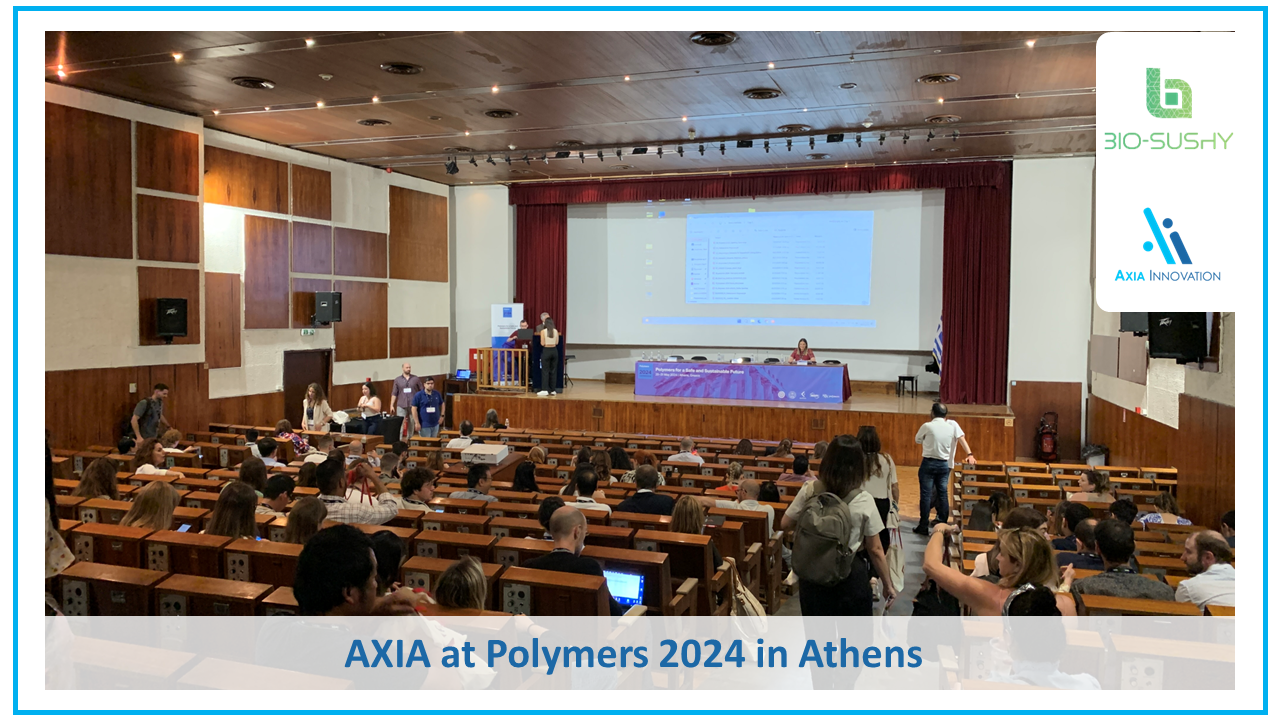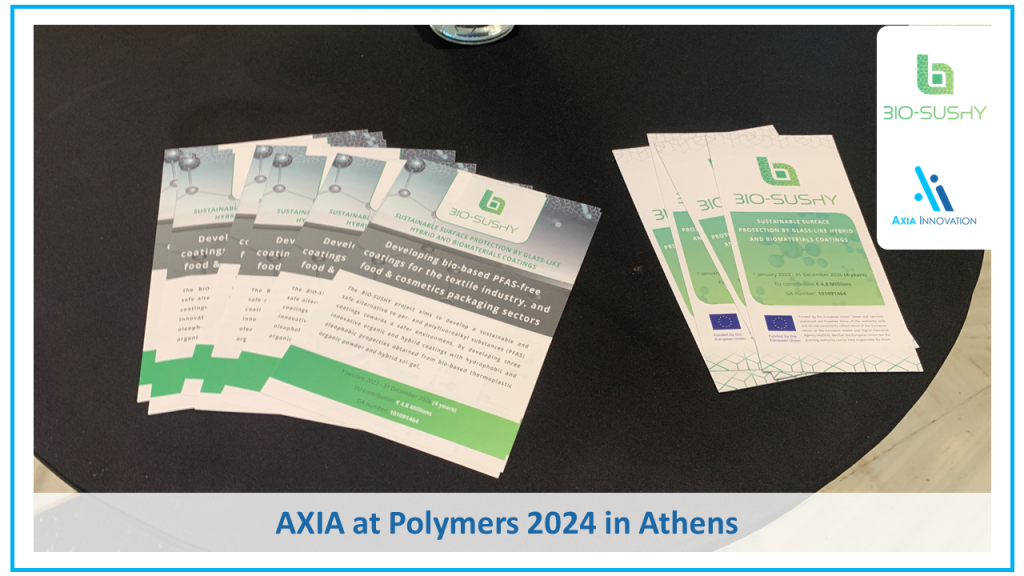
AXIA at the Polymers 2024 MDPI Conference in Athens
AXIA Innovation, a partner of the BIO-SUSHY project and leader of the work package on measures to maximize impact through communication, dissemination, and exploitation, recently participated in the Polymers 2024 conference held from May 28-31, 2024, in Athens, Greece. This conference was an excellent platform to present the project’s innovative solutions in sustainable polymer applications.
At the event, AXIA Innovation played a strategic role as our CEO, Dr. Ioanna Deligkiozi, chaired the conference. AXIA also showcased a poster titled “Utilizing Bio-Based Coatings To Address PFAS Concerns – A Strategic Analysis Using PESTLE and SWOT Tools.” This poster provided a comprehensive analysis of bio-based coatings using PESTLE (Political, Economic, Social, Technological, Legal, and Environmental) and SWOT (Strengths, Weaknesses, Opportunities, Threats) tools. The research highlighted strategic insights into the adoption and benefits of bio-based alternatives to traditional PFAS-containing materials, emphasizing the project’s advancements in addressing environmental concerns.
The Polymers 2024 conference, attended by over 300 participants, focused on polymer science and technology, making it a perfect venue for the BIO-SUSHY project. The project’s objectives align with the conference’s theme, emphasizing the development of sustainable, bio-based polymer solutions. Attendees had the opportunity to engage with the project’s findings and discuss their broader implications for the polymer industry.
For those interested in exploring the detailed content of the presentation and other related project, one can visit the dissemination material section of the BIO-SUSHY project website.
The BIO-SUSHY project has received funding by the European Union under the Grant Agreement Number 101091464. Views and opinions expressed are however those of the author(s) only and do not necessarily reflect those of the European Union or the European Health and Digital Executive Agency (HaDEA). Neither the European Union nor the granting authority can be held responsible for them.



